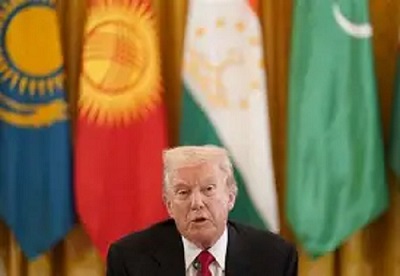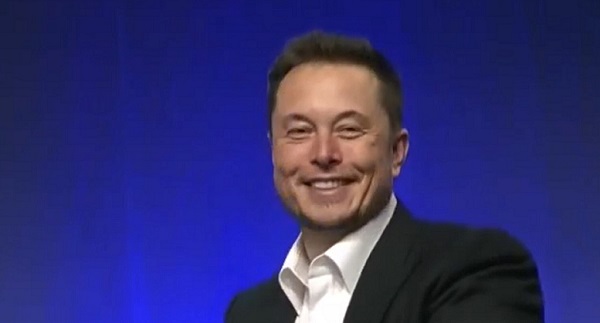MAiD
Canadian psychiatrist sounds alarm over Trudeau gov’t plan to expand euthanasia to the mentally ill

From LifeSiteNews
” someone not dying because of their condition, such as a mental disorder alone, seeking death is, by definition, suicidal. “
Dr. Harvey Chochinov, the well known professor of psychiatrisy from the University of Manitoba and the developer of dignity therapy, wrote an article that was published in the National Post on December 30, 2023 titled: Intensive compassionate caring — not MAiD — is the most effective way to address mental illness.
Chochinov writes:
It’s time to put the brakes on Medical Assistance in Dying (MAID) in Canada for those whose sole underlying medical condition is mental illness.
The federal government has tasked the Special Joint Committee on Medical Assistance in Dying to determine if Canada is ready to extend MAID eligibility, starting in March 2024, to patients with mental illness alone. Despite those convinced it is time, and safe, to launch what amounts to ‘psychiatric euthanasia,’ the special committee must pay attention to a murmur of protest that has grown to a roar: Ottawa, we’ve got a problem.
Current MAID eligibility requires a person have a grievous and irremediable medical condition. Unlike some cancers, and many neurodegenerative disorders, no mental disorder can be described as irremediable. To be sure, there are individuals whose mental affliction won’t improve, despite myriad treatments or psychosocial interventions. But there is currently no way to predict which patients won’t get better.
Studies of prognostic accuracy show psychiatrists are wrong half the time. I have cared for patients struggling with chronic suicidality; patients I worried might one day take their lives. I recall a woman with mind-numbing depression, who teetered precariously between life and death. One day, after years of countless drug trials, hospitalizations, electroconvulsive therapy, and various psychosocial interventions, she arrived for her appointment — three weeks into starting a new antidepressant — with a grin on her face.
‘The door is purple,’ she declared. I told her the door had always been purple, to which she replied, ‘I know, but now I care.’
Before that moment, no one — not me, not her friends or family and not anyone on The Special Joint Committee on Medical Assistance in Dying, nor any MAID assessor — could have predicted her recovery.
Chochinov then states that intensive, unwavering, compassionate care and caring — not MAID — offers the most effective way to address this kind of suffering.
The other reason not to launch psychiatric euthanasia is our inability to determine suicidality from those requesting MAID whose sole underlying medical condition is mental illness. According to the Canadian Association for Suicide Prevention, someone not dying because of their condition, such as a mental disorder alone, seeking death is, by definition, suicidal.
Similarly, the first item listed by the American Association of Suicidology differentiating physician hastened death and suicide is the patient must be dying. That certainly does not characterize patients who are mentally ill.
The euthanasia expansionists told the Special Joint Committee on Medical Assistance in Dying that “suicidality and having a reason to want to die are not at all the same.” Chochinov responds by stating:
We can say ‘six’ and ‘half-dozen’ are not the same as many times as we like. If we repeat it frequently, consistently and without equivocation, it might even sound convincing, but that doesn’t make it true.
Patients struggling with suicidality often have a reason to want to die, based on, for example, self-loathing, feeling like a burden or becoming worn down pursuing care and support that could sustain them. In those instances, the line between MAID and suicide simply vanishes.
Avoiding discrimination does not mean everyone is treated the same, but rather, that everyone gets equal access to what they need to thrive.
Time and again, committee members have asked witnesses when Canada’s psychiatric euthanasia program can be launched. I would suggest they behave like NASA. When a potentially catastrophic problem is identified before blast-off, space engineers don’t set an arbitrary new launch date, no more so than Health Canada announces a random release date of a new drug discovered to have unacceptable side-effects.
Ottawa, we have a problem.
The federal government would be well advised to scrap this mission. But if it insists on moving forward, launch should proceed only when the problems are solved, and not a moment sooner.
Reprinted with permission from Euthanasia Prevention Coalition.
MAiD
Study promotes liver transplants from Canadian euthanasia victims

From LifeSiteNews
A new study encourages transplants from euthanasia donors, saying that harvesting the organs of people killed by euthanasia has a ‘real impact’ on organ supply.
A concerning new study shows that liver transplants from euthanasia donors yield similar results as those from other donations, a finding that could increase pressure to euthanize vulnerable Canadians.
On October 26, the Journal of Hepatology published research comparing liver transplants in Canada from donations after circulatory death – a problematic method of organ donation – and from donations of those who were euthanized, in the latest study into increasing organ transplants from euthanasia or so-called “medical assistance in dying” (“MAID”) victims.
“Our study provides the first large-scale Canadian experience, paralleling previous studies from Belgium and the Netherlands, showing that outcomes are positive, while also demonstrating the real impact that MAiD donation can have on the availability of organs,” co-lead investigator A.M. James Shapiro declared.
“While not all individuals pursuing MAiD are suitable for donation for various reasons, we hope that our study will allow a better understanding of the potential role of organ donation following MAiD,” he continued.
Shapiro highlighted, in his view, “how impactful it can be for saving lives of many people in their final act of generosity.”
Canada is one of few countries, alongside Australia, Belgium, Spain, and the Netherlands, that harvests organs from euthanasia victims. Under the Liberal government, Canada has become the world leader in organ donations from people who obtained state-sanctioned euthanasia.
Recently, the interest in the practice has boomed, after the heart of a euthanized Canadian man was successfully harvested and donated to an American man with heart failure.
While many Canadians are left without necessary healthcare and even goaded to end their lives through euthanasia, the Liberal-run health system appears to prioritize the lucrative business of harvesting organs from Canadians killed off by their euthanasia regime.
According to some estimates, a heart is “worth around $1 million in the U.S. Livers come in second, about $557,000, and kidneys cost about $262,000 each. Not to speak about human skin ($10/inch), stomach ($500), and eyeballs ($1,500 each).”
Additionally, as LifeSiteNews has extensively covered, health officials have sounded the alarm over organs being harvested from still living patients in order to obtain fresh organs for transplants.
Similarly, conservative Irish think tank academic Dr. Angelo Bottone has warned against a push to harvest organs from euthanasia victims before they are killed.
“While donation after euthanasia is already happening in those countries, doctors are now discussing harvesting organs before euthanasia patients are declared dead, in order to preserve organ viability,” Bottone wrote.
“They propose that organs be removed under general anaesthesia before the patient is declared dead, thereby maintaining continuous blood circulation and oxygenation to the organs until the moment of retrieval,” the scholar continued. “This method could significantly improve the quality and quantity of organs available for transplantation.”
The most recent reports show that euthanasia is the sixth highest cause of death in Canada. However, it was not listed as such in Statistics Canada’s top 10 leading causes of death from 2019 to 2022.
Asked why euthanasia was left off the list, the agency said that it records the illnesses that led Canadians to choose to end their lives via euthanasia, not the actual cause of death, as the primary cause of death.
According to Health Canada, in 2022, 13,241 Canadians died by lethal euthanasia injections. This accounts for 4.1 percent of all deaths in the country for that year, a 31.2 percent increase from 2021.
MAiD
Disabled Canadians increasingly under pressure to opt for euthanasia during routine doctor visits

From LifeSiteNews
Inclusion Canada reported to Parliament that disabled Canadians feeling pressure to choose assisted suicide is a ‘weekly’ occurrence due to MAiD expansion to the non-terminally ill.
Inclusion Canada CEO Krista Carr revealed that many disabled Canadians are being pressured to end their lives with euthanasia during routine medical appointments.
During an October 8 session of the Parliamentary Finance Committee, Carr, an advocate against Medical Assistance in Dying (MAiD), explained that Canada’s expansion of MAiD to the non-terminally ill has led to people with disabilities being pressured to end their lives during unrelated medical visits.
“Since the bill was brought in around Track 2 MAID … that has certainly changed people’s interactions with the healthcare system,” she explained, referring to the 2021 expansion that allowed those who are chronically ill but not terminally ill to be euthanized.
“People with disabilities are now very much afraid in many circumstances to show up in the health care system with regular health concerns, because often MAID is suggested as a solution to what is considered to be intolerable suffering,” she revealed.
WOW
“People with disabilities are now very much afraid in many circumstances to show up in the healthcare system with regular concerns. Often MAID is suggested as a solution.
“Since the bill was brought in around Track 2 MAID…that has certainly changed people’s interactions… pic.twitter.com/kjsVk8UbAK
— Garnett Genuis (@GarnettGenuis) October 16, 2025
Conservative Member of Parliament Garnett Genuis questioned how often people with disabilities are encouraged to have themselves euthanatized. Carr responded that this is a “weekly” occurrence for Canadians living with disabilities.
Carr warned that Canadians living with disabilities are disproportionately targeted by the MAiD expansion because their medical conditions leave them vulnerable to the euthanasia mindset within hospitals. Additionally, according to Carr, “poverty” is considered “intolerable suffering,” making a person eligible to receive MAiD.
Carr’s statement supports internal documents from Ontario doctors in 2024 that revealed Canadians are choosing euthanasia because of poverty and loneliness, not as a result of a terminal illness.
In one case, an Ontario doctor revealed that a middle-aged worker, whose ankle and back injuries had left him unable to work, felt that the government’s insufficient support was “leaving (him) with no choice but to pursue MAiD.”
Other cases included an obese woman who described herself as a “useless body taking up space,” which one doctor argued met the requirements for MAiD because obesity is “a medical condition which is indeed grievous and irremediable.”
Overall, 116 of Ontario’s 4,528 euthanasia deaths in 2023 involved non-terminal patients, with many of those killed from impoverished communities.
Data from Ontario’s chief coroner for 2023 revealed that over three-quarters of those euthanized when death wasn’t imminent required disability support before their death.
Similarly, nearly 29% of those killed when they were not terminally ill lived in the poorest parts of Ontario, and only 20% of the province’s general population lives in those areas.
At the same time, the Liberal government has worked to expand MAiD 13-fold since it was legalized, making it the fastest growing euthanasia program in the world.
Currently, wait times to receive care in Canada have increased to an average of 27.7 weeks, leading some Canadians to despair and opt for euthanasia instead of waiting for assistance. At the same time, sick and elderly Canadians who have refused to end their lives via MAiD have reported being called “selfish” by their providers.
The most recent reports show that MAiD is the sixth highest cause of death in Canada. However, it was not listed as such in Statistics Canada’s top 10 leading causes of death from 2019 to 2022.
Asked why MAiD was left off the list, the agency said that it records the illnesses that led Canadians to choose to end their lives via euthanasia, not the actual cause of death, as the primary cause of death.
According to Health Canada, 13,241 Canadians died by MAiD lethal injections in 2022, accounting for 4.1 percent of all deaths in the country that year, a 31.2 percent increase from 2021.
-

 Business2 days ago
Business2 days agoCarney budget doubles down on Trudeau-era policies
-

 espionage2 days ago
espionage2 days agoU.S. Charges Three More Chinese Scholars in Wuhan Bio-Smuggling Case, Citing Pattern of Foreign Exploitation in American Research Labs
-

 COVID-192 days ago
COVID-192 days agoCrown still working to put Lich and Barber in jail
-

 Business1 day ago
Business1 day agoCarney’s Deficit Numbers Deserve Scrutiny After Trudeau’s Forecasting Failures
-

 Business2 days ago
Business2 days agoCarney budget continues misguided ‘Build Canada Homes’ approach
-

 International1 day ago
International1 day agoKazakhstan joins Abraham Accords, Trump says more nations lining up for peace
-

 armed forces20 hours ago
armed forces20 hours agoIt’s time for Canada to remember, the heroes of Kapyong
-

 Automotive1 day ago
Automotive1 day agoElon Musk Poised To Become World’s First Trillionaire After Shareholder Vote






